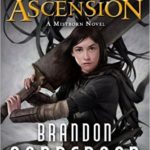What’s A Work Of Fiction To Accomplish?
A recent commenter to Stephen Burnett’s review of the Dark Knight made this statement:
the issues raised by the literature [discussed] on this blog [do] tend to raise these very fundamental issues [the origin of the universe; evolution; the existence or not of a good, omnipotent God; the origins of evil; suffering; and so on]
DB is absolutely right. The literature we discuss at Spec Faith brings up these ultimate issues. But how much of understanding is in the eye of the viewer, or when discussing books, in the eye of the reader? For example, where Stephen and others saw redemption in the Dark Knight, DB saw a distrust in humanity, and some reviewers, such as Bryan Davis, saw evil triumph.
How is it that the same work can stir up so many interpretations? And is this a good thing or something to be wary of? Shouldn’t it be clear that good wins out? And what, after all, is good? Is it the indomitable human spirit, a creator God who made all things well, doing no harm to others or to our planet, a figment of the imagination?
Shouldn’t a work of fiction make this clear?
I’ll admit, I’m ambiguous on this point. When it comes to literature as art, I think the spelled-out ending is weak. Nothing is left for the reader to contemplate. No gaps left for the imagination to fill. Everything tidy and neat, tied up in a box and delivered for the reader. No further thought required.
But when I think about my own writing, do I want pagans latching on and finding something they think fits their worldview, as many do with Tolkien’s work? Do I want humanists to think my character came through without any help from an incompetent god?
No and no. So a part of me wants there to be no doubt what I mean by the story, and another part of me wants very much for readers to discuss the implications of this or that event, decision, character’s choices.
The question is this. Does a piece of fiction impact a reader more by ambiguity and the ensuing discussion, or by clarity?
I’ve never heard a discussion about whether or not Aslan was a redemptive character. Did Lewis create a less powerful character as a result of making him clearly good, clearly redemptive?
I already said, I’m ambiguous on this subject. What are your thoughts?









































COMMENT: AUTHOR: Marion DATE: 8/12/2008 11:31:38 AM I saw Dark Knight and thought the movie was ambitious and made me think about what would I do in that situation with the Joker who was pure evil. To your question, Becky….. I read the best quote about this from Orson Scott Card, “that as a writer you must the clearest storyteller you can be.” I was paraphrasing from his HT Write Science Fiction & Fantasy Book. As an avid reader and writer, I have thought about the statement a lot. I believe you don’t have to spell everything out for the reader. But, I do believe you need to make your stories as clear as possible. A lot of novelists (especially filmmakers) tried to be complex in order to be hip and prove they are smarter than their audience. Mostly their stories of complexity become a vagueness mess of art. I’ve always thought the best stories were simple but had a lot of meaning. Look at Jesus when he told his parables during his ministry. On the surface, those parables looked simple and his audience could to relate them on a basic level. However, they were full of meaning and are still read and studied 2000 years later. One more example, my favorite novel is David Copperfield by Charles Dickens. On the surface, it is a simple coming of age story. But, as I read the novel I could tell there was lot of depth and clarity that jumped off the page at me. If we are writers of speculative fiction, I believe we must make our stories with clarity without spelling everything out for the reader and with simplicity but have depth so our readers can read something that will want to make them re-reading again and again.
—– COMMENT
AUTHOR: Keanan Brand DATE: 8/13/2008 7:04:17 PM As a Christian, my faith and worldview permeates my writing, even when overt “God talk” is not present in a scene or in a section of dialogue. Sometimes, even when I think I’m addressing one theme–forgiveness, for instance–I might re-read the piece and realize there are other themes present, such as faith or justice, love or truth: stealth Christianity. I think readers, regardless of their faith or worldview, pick up on those themes, even if only in their subconscious. God can work with that. (The Dark Knight confronts moral questions and presents Christian themes, whether or not that was the filmmakers’ intention.) On the other hand, if I write an out-right, in-you-face Christian piece of fiction, I have (in my opinion) an obligation to still tell a story, to engage the reader’s interest. That doesn’t always include an “altar call” or a tidy ending; sometimes, a writer must leave something for the reader to contemplate without forcing him to come to one conclusion or another. To imperfectly paraphrase an old saying, “You can lead a man to knowledge, but can’t make him think.” That’s where we writers who are Christians can pray over our work and ask God to use it as He wills. Even fiction can be a ministry.
—– COMMENT
: AUTHOR: Rebecca LuElla Miller DATE: 8/16/2008 1:11:03 AM Great comments. Marion, I agree that simplicity and clarity don’t have to degate depth. I think that’s why Alsan came to mind as an example. I thought Lewis pulled off exactly what you describe. keanan, I’ve had the same experience you mention–aiming to write to one point and looking back to find I’d also written to a secondary point, also part of my worldview. I do think we need to write terrific stories, whether or not the Christianity is overt. I think the best stories I’ve read with overt Christianity are accessable by any reader. Someone without a Christian worldview may disagree and may even dislike the work, but I don’t think they will feel preached at. And you’re also right–we can invite readers to think deeply by the way we frame our stories, but we can’t make them. Absolutely right that prayer should be a key component! Becky
—– COMMENT
: AUTHOR: Marion DATE: 8/17/2008 6:50:58 PM Thanks for the compliment, Becky! I’ve been thinking about this entry a lot every since it has been posted. What should a work of fiction accomplish? Well, I’m working on a novel where my protagonist lives in a city in my fictional world that practices a form of astrology and their god created a culture and world view around this belief. However, my protagonist will be led away from his hometown into another city that believes in the Trinity and a Christian world view. Also, he will find out that one of his ancestors founded this city (a rival city) many years ago and my protagonist will have to bring both cities together believing in his ancestor’s religion. (I created my protagonist’s ancestor after Abraham from Genesis 12.) The only thing I hope for in this novel is that I don’t bang my reader over the head saying astrology is bad and Christianity is good. Obviously, I do believe that as believer and follower of Christ. I already know some Christians won’t read my novel because I’m dealing with astrology. But, I still have to tell a story and I want to make sure my protagonist discovers his conversion and destiny on his own. Plus, I’m telling the story through his eyes (first-person viewpoint) and I want to reader to follow along with him on his journey. So, I hope this work of fiction accomplishes a story that is clear, simple, and entertaining. Also, something people can read and re-read again.
—– COMMENT
: AUTHOR: Mike Duran DATE: 8/18/2008 3:35:56 PM It’s one of the profundities of art that people interpret pieces differently. Unless we want to police those interpretations, or create nothing but overt propaganda, we must allow that some will see Gandalf as an endorsement of paganism and Aslan as an archetype for Universal Love (or something equally wishy-washy). Even within a biblical worldview, there is much ambiguity and mystery in life. Good people have flaws, bad people do good things, evil sometimes wins, the rain falls on the just and the unjust. The idea that “Christian stories” must have sermonic clarity and tidy resolutions is unrealistic to both Scripture and life. As long as we want readers to think through the implications of our fiction, there will be the potential for readers to think wrongly.
—– COMMENT
: AUTHOR: Rebecca LuElla Miller DATE: 8/18/2008 8:20:08 PM
Thanks, Mike. Excellent point. Yesterday I labored over a comment to DB in that original post of Stephen’s Dark Knight review in which I expounded on God giving Mankind choice between two distinct things. He could have mandated our decision or eradicated the consequences of a wrong decision, but then there would be no actual decision. What does that have to do with your comment? Writers are sort of the same. If we write to make readers think, they may think wrongly. But our choice is to write something that tells readers WHAT to think or (as I’ve been considering) telling them how I intended for them to think. I’m still not sure if the latter is a cop out or not. I’ll have to think on the subject some more. Becky
[…] years ago, I wrote a blog post for Spec Faith about how a work of fiction may intend to accomplish one thing, but readers may […]